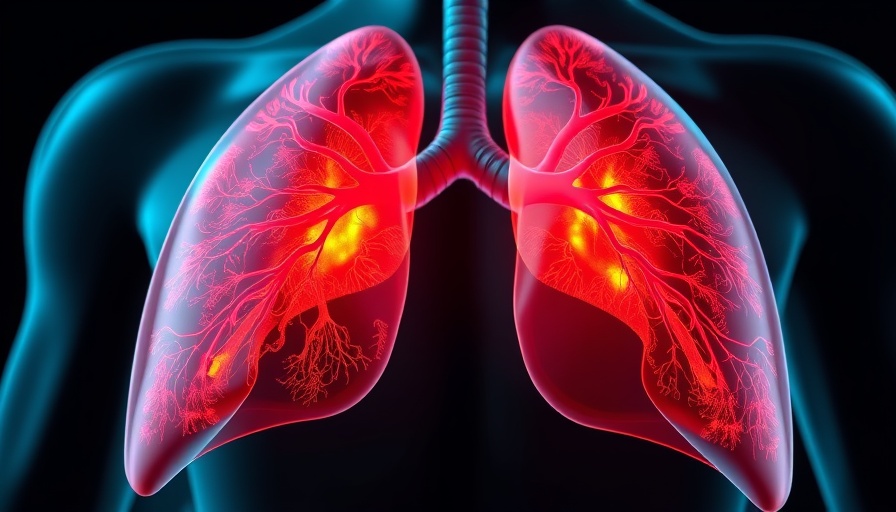
The Overlooked Threat of Walking Pneumonia
When we think of pneumonia, we often imagine the acute and severe conditions that can send anyone to the hospital. Though less talked about, walking pneumonia is a real and significant health issue, especially in our community. While it might sound less intimidating than conventional pneumonia, walking pneumonia can lead to serious health complications if overlooked. Understanding what it is and how to approach treatment can make a substantial difference for individuals and families.
In 'Walking Pneumonia Explained: Mild Symptoms, Serious Facts | Ask the Doc,' we delve into the nuances of walking pneumonia treatment and its importance, prompting us to shed light on key insights that can empower our community.
What Is Walking Pneumonia?
Walking pneumonia is technically known as atypical pneumonia. It’s primarily caused by bacteria that differ from those typical in community-acquired pneumonia, most notably Mycoplasma pneumoniae. Symptoms can often be mistaken for a common cold or flu, which may lead to underestimating its seriousness. Sufferers often experience lingering cough, mild fever, fatigue, and difficulty breathing. Since many individuals might brush off these symptoms, it's vital to recognize that walking pneumonia does require medical evaluation and potential treatment.
The Role of Bacteria in Lung Health
At the heart of pneumonia is an infection characterized by inflammation of the lung's air sacs, known as alveoli. When these sacs get blocked with pus or fluid due to infection, it can obstruct the vital gas exchange process that keeps us healthy. Untreated pneumonia, in any form, can result in challenging complications, including the need for hospitalization. Understanding this can prompt quicker action in recognizing potential pneumonia symptoms in our loved ones.
Diagnosis and Treatment: Your Guide to Recovery
Diagnosing walking pneumonia involves a thorough assessment, including potential sputum cultures to identify bacteria. Unlike acute pneumonias, where typical bacteria dominate, walking pneumonia's culprits often evade standard cultures. Thankfully, treatment options are effective, often utilizing antibiotics like Azithromycin or Doxycycline. Health-conscious individuals need to consult with healthcare professionals to ensure the right course of action for recovery. Addressing walking pneumonia in its early stages can significantly ease discomfort and facilitate a quick return to normal activities.
Family Health Components: Preventive Measures
When it comes to community health, understanding preventive measures is crucial. Regular vaccinations can help reduce the risk of pneumonia, particularly the pneumococcal vaccine. Emphasizing nutrition, fitness, and overall well-being can contribute to a stronger immune system, which is essential in warding off such infections. Engaging in a healthy living regimen also includes being attuned to one's body—early intervention is key.
Addressing Common Misconceptions about Walking Pneumonia
Many people dismiss walking pneumonia because of its name, conjuring thoughts of a minor illness. However, it is crucial to debunk this myth. While it often does not necessitate hospitalization as typical pneumonia might, walking pneumonia can lead to complications and should be treated with the seriousness it deserves. Understanding that even mild symptoms can indicate a significant problem empowers individuals to seek help sooner.
The Emotional Impact of Walking Pneumonia
For those diagnosed with walking pneumonia, the psychological effects can sometimes be as significant as the physical symptoms. The fear of illness and its potential impacts on daily living can create anxiety within families. Therefore, mental health checks should go hand in hand with physical assessments. Open discussions about health can foster stronger family bonds, allowing everyone to support the affected individual mutually.
Future Trends: Enhancements in Pneumonia Treatment
The realm of medical advancements continuously strives to improve our understanding and treatment of various diseases, including pneumonia. Emerging healthcare innovations may enhance diagnostic techniques, ensuring that atypical pneumonia cases are captured earlier. Future vaccines and antibiotics could also minimize and prevent infection in the first place. Keeping abreast of such innovations not only empowers individuals but enriches community health overall.
As we navigate the realm of health and wellness, particularly concerning conditions like walking pneumonia, it becomes essential to nurture family health, prioritize active lifestyles, and foster open communication regarding medical advice. By championing these topics, we can foster a well-informed community prepared to tackle any health issue that arises.
 Add Row
Add Row  Add
Add 






Write A Comment